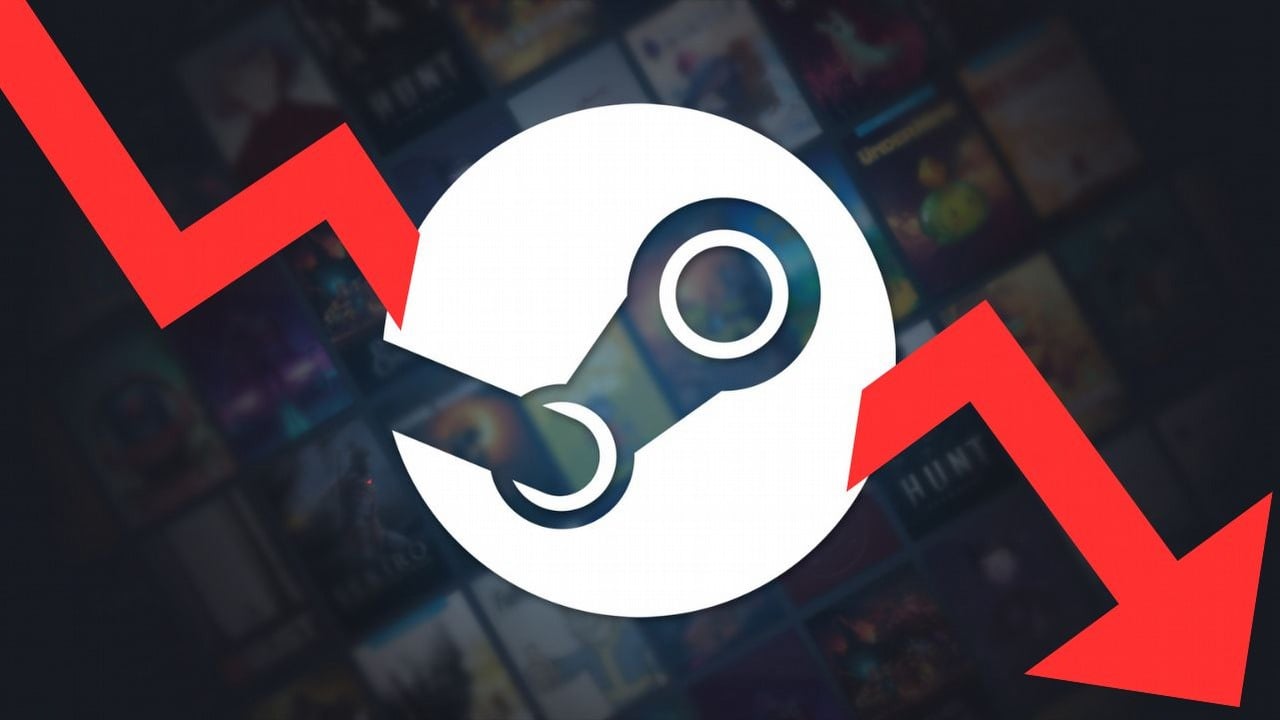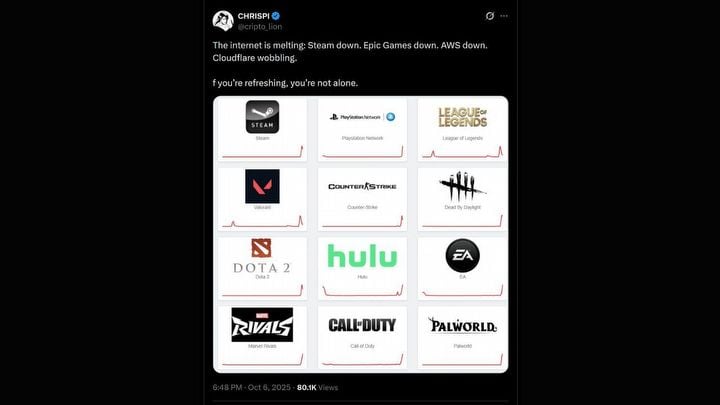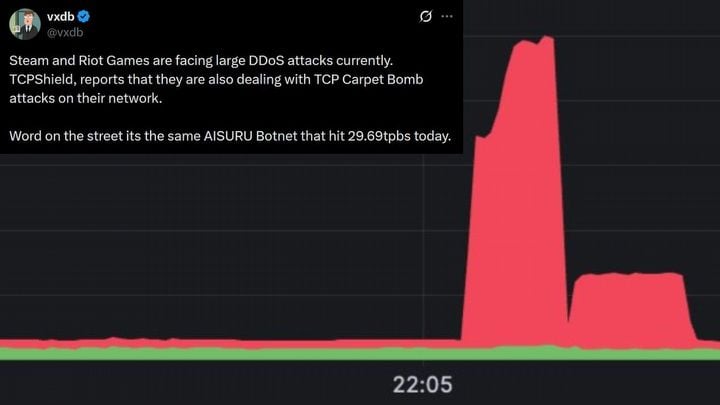
Steam and Riot Games were likely hit by a large DDoS attack earlier today. Riot Games reported yesterday that players were experiencing disconnects and were working to fix the issue, as first noted by Cybernews. They briefly paused ranked games during the disruption, but that seems to have been resolved. If you had trouble connecting to Steam today and saw an E503 L1 error, it was likely related to this attack.
Massive DDoS attack might have been the culprit behind Steam issues earlier today, as well as other outages
The recent outages are believed to be the result of a large botnet called Aisuru, which experienced unusually high traffic levels during the disruptions. Information from Downdetector and a social media post by @cripto_lion suggest a widespread impact. Steam was among the targets, but many other gaming services and games were also affected. PlayStation Network and EA experienced outages simultaneously with Steam, and players reported issues with games like Marvel Rivals, Call of Duty, Palworld, Counter-Strike, Valorant, Dead by Daylight, Dota 2, and League of Legends.

Aisuru, a botnet first spotted in 2024, hit a new peak today, reaching 29.69 terabytes per second. This breaks its previous record of 22.2 terabytes per second set just last month, as reported by Cybernews. Because this botnet is growing rapidly, we can expect to see further attacks in the future.

It’s worrying that we’re seeing a shift away from actually owning games. Remember when the PlayStation Network was down earlier this year? Even players without subscriptions couldn’t access their games. It’s becoming clear that the industry is moving towards a model where you’re buying a license to *play* a game, not owning it outright. This makes customers heavily dependent on services like Steam and PlayStation Network, and makes disruptions like this outage even more problematic.
We’re still waiting for more details about what’s happening. It hasn’t been confirmed as a DDoS attack yet – it’s just a suspicion. However, it would be a strange coincidence if these issues weren’t related.
Read More
- All Golden Ball Locations in Yakuza Kiwami 3 & Dark Ties
- NBA 2K26 Season 5 Adds College Themed Content
- Hollywood is using “bounty hunters” to track AI companies misusing IP
- What time is the Single’s Inferno Season 5 reunion on Netflix?
- Mario Tennis Fever Review: Game, Set, Match
- EUR INR PREDICTION
- Exclusive: First Look At PAW Patrol: The Dino Movie Toys
- He Had One Night to Write the Music for Shane and Ilya’s First Time
- Gold Rate Forecast
- Brent Oil Forecast
2025-10-08 02:02